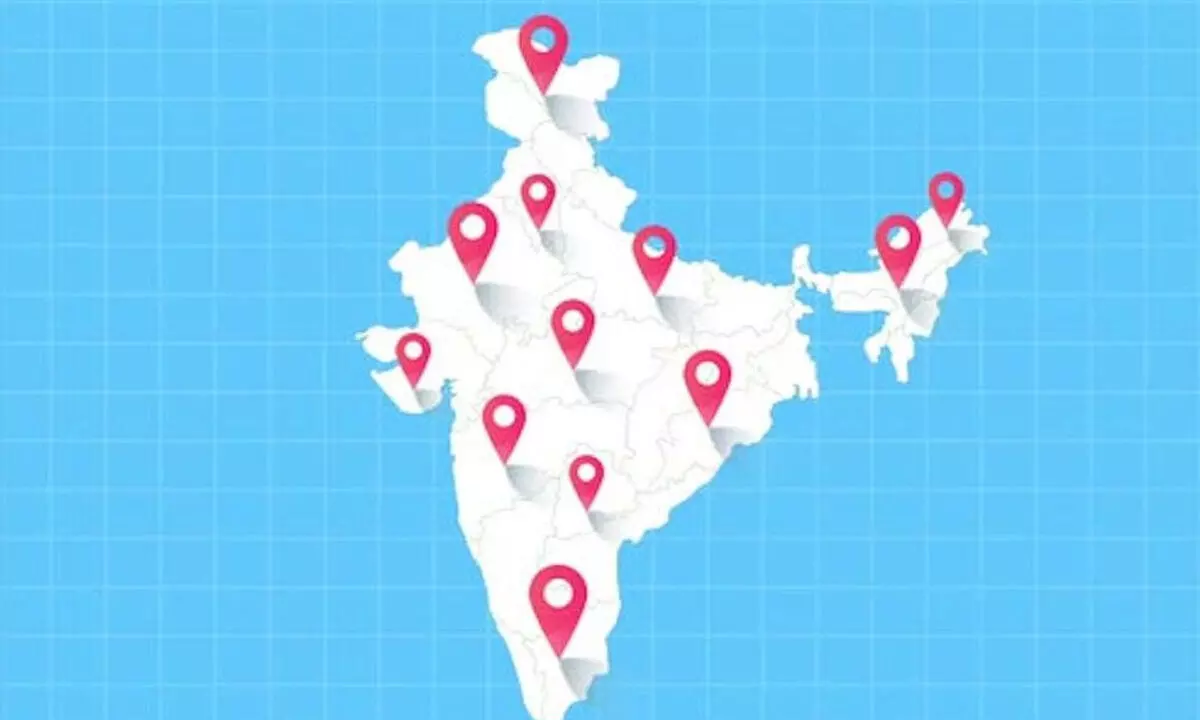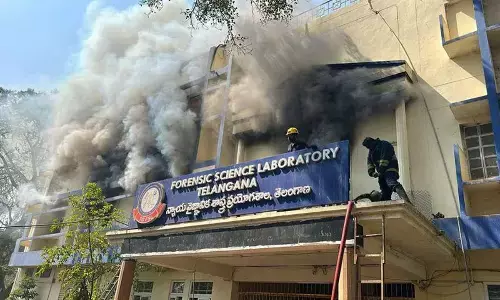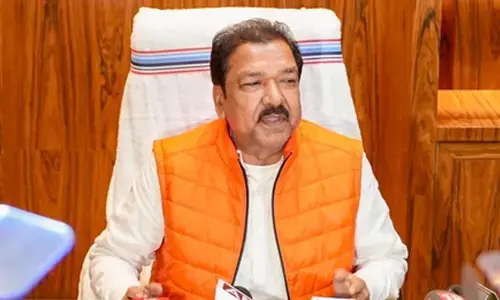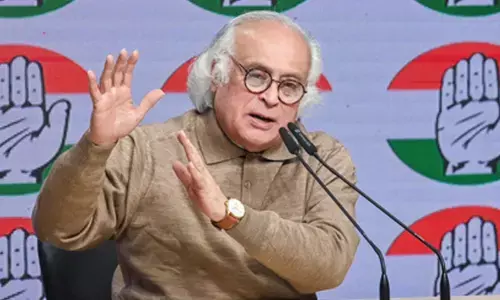Decolonisation & reclaiming heritage: Rename places as pillars of identity

Decolonisation, or reclaiming heritage to establish an identity of our own that existed 800 years ago, is crucial.
Decolonisation, or reclaiming heritage to establish an identity of our own that existed 800 years ago, is crucial. The need for a ‘Swa-centric’ collective approach for social transformation should begin with the names of places. Place names are pillars of identity; from India to Bharat, many cities, towns, and villages need to be renamed to their original names.
We should celebrate “Re-Namakaranam Utsav” across the country. The essence of the Rashtra’s ‘swa’ (selfhood) should be the compass directing our collective consciousness, illuminating our directions, aspirations, and expectations. This will lead to ‘self-reliance’ from this perspective while analysing the history of Bharat’s struggle for independence.
Swa was the driving force behind the national movement, inspiring both extraordinary leadership and the common man to resist foreign invaders who sought to trample upon the country’s culture and belief systems.
A close study of the struggles led by great men and women across the country, from Kanyakumari to Kashmir, reveals that their actions were driven not by narrow or mundane concerns but by the existential threat posed by foreign domination to the native way of life.
After 78 years of Bharat’s independence, it is crucial to revisit our roots and embrace the concept of “swa” (our own), which carries a wealth of inspiration and a responsibility for the contemporary generation to carry forward.
Since early medieval times, the idea of “Swa” has been continuously diluted. The freedom struggle was not just against colonial exploitation but also a fight to rediscover our true “Swatva.” Today, we have a great opportunity to revisit, refine, and reinvent our collective truth, reexamining the freedom struggle and reshaping our understanding of our past and identity.
During the independence struggle, our people fought for “Swa” (selfhood), believing that removing the British alone was insufficient without dismantling the centralised, exploitative system they imposed.
The concepts of Sarvodaya (care for the earth, animals, and land), Swaraj (self-governance through decentralised, participatory structures, promoting social transformation and moral governance), and Swadeshi (rebuilding local economies for local consumption) are rooted in “Swa”—the selfhood.
Colonialism sought to suppress this idea, eroding Bharatiya identity and self-respect through cultural and religious imperialism. As we celebrate 78 years of independence, it’s crucial to reexamine history, correct misrepresentations, and recognise the enduring nationhood expressed through Sanskrit, pilgrimages, and sacred geography.
Importance of Place Names in Ancient Bharat
In ancient Bharat, place names were more than mere labels; they held deep spiritual, cultural, and geographical significance. These names reflected the unique characteristics, historical events, and religious associations of a place, shaping its identity and the identity of its people.
For instance, Varanasi, one of the world’s oldest cities, derives its name from the confluence of the Varuna and Assi rivers. This name signifies not just a geographical location but a spiritual center where life and death converge, embodying the city’s profound cultural and religious heritage.
Similarly, Prayagraj (formerly Allahabad) denotes the sacred confluence (Sangam) of the Ganga, Yamuna, and the mystical Saraswati rivers. This name highlights the city’s revered status as a pilgrimage site and its deep spiritual significance.
Also, Hyderabad, formerly known as Bhagnagar or Bhagyanagar, reflects the city’s early history and its connection to local culture and lore before it became a major center under the Qutb Shahi dynasty. Reclaiming the name Bhagyanagar is seen as a way to reconnect with the city’s historical roots and cultural identity.
Impact of Colonialism on Place Names
During the colonial period, British authorities systematically replaced these ancient names with Anglicized versions or names that served their own agenda. This effort aimed to disconnect the people from their rich heritage and impose a foreign identity that aligned with colonial interests. The renaming of cities like Bombay (now Mumbai), Calcutta (now Kolkata), and Madras (now Chennai) exemplifies this cultural erasure.
The colonial names not only ignored the rich historical and cultural context of the original names but also imposed a homogenised identity that disregarded the diversity and depth of Bharat’s heritage. This erasure was a means of suppressing indigenous stories, beliefs, and identities.
Reclaiming and Rebuilding Identity Through Place Names
As Bharat progresses towards decoloniSation, reclaiming ancient place names is a crucial part of restoring its identity and selfhood. Renaming places to their original names—such as Allahabad to Prayagraj, and Madras to Chennai—symbolises a return to the nation’s cultural and spiritual roots.
It honours the historical and cultural narratives embedded in these names and reaffirms Bharat’s ancient heritage.
This process is not just about changing names but about reestablishing a connection with Bharat’s historical and spiritual essence. It is a declaration that Bharat is not merely a modern nation-state but a civilisation with a profound and ancient heritage.
Broader Implications of Reclaiming Place Names
Reclaiming place names is part of a broader movement towards decolonisation that encompasses cultural, educational, and governance aspects. It involves reviving indigenous knowledge systems, languages, and traditions that were marginalised during colonial rule.
This revival is crucial for reconnecting with Bharat’s past and building a future rooted in its cultural identity.
The act of reclaiming place names also has a significant psychological impact. It empowers the people of Bharat to take pride in their heritage and assert their identity on the global stage. This process of decolonisation helps rebuild Bharat’s selfhood by honoring its past and shaping its future.
The restoration of ancient place names is a vital step in Bharat’s journey of decolonisation. These names are more than just historical markers; they embody the land’s spiritual and cultural essence. By reclaiming these names, Bharat is reconnecting with its history and identity, ensuring that its future is deeply rooted in its rich and glorious past.














